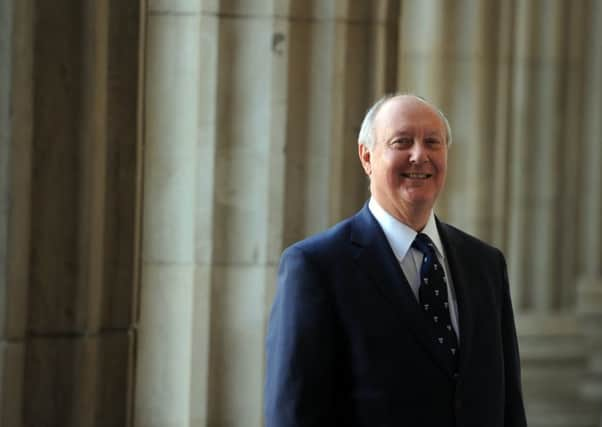Dave Watson: Tax debate is not going to suddenly disappear


At last you are thinking, a real debate on tax, even though it’s taken our third devolution settlement in less than a generation to get there.
The Scotland Act 1999 established the Scottish Parliament with the power to vary the basic tax rate by 3p in the pound. The Scotland Act 2012, followed the Calman Commission, introducing a Scottish Rate of Income Tax from April 2016. The Scotland Bill 2015-16, which is currently making its way through Westminster, followed the Smith Commission, includes significant welfare and tax powers.
Advertisement
Hide AdAdvertisement
Hide AdThe original devolution settlement gave the Scottish Parliament powers over taxation that represented less than 10 per cent of devolved expenditure. The Scotland Bill 2015/16, if we take VAT revenue into account, will have powers over taxation equal to almost half of devolved expenditure.
Suddenly tax is important, not just because it is the means by which we pay for public services - it directly impacts on the Scottish economy. And our broader political debate is going to have to get used to it.
The problem is that the present political debate is so narrow. It is so much more about whether we can fund marginal increases in public services or whether a political party is for or against austerity. Important, though these positions are.
We now need to use these powers to put forward clear visions of the Scotland we want to create.
For example, the debate on the latest GERS figures was focussed exclusively on our national deficit and off-shore oil revenues. Would Scotland have been better or worse had it voted yes? Can we afford to fund public services and not raise taxes?
I can’t help thinking this debate is not matching the times. The fact that we do not have the full range of powers is not an excuse for inaction.
Of course the debate about Scotland’s constitution will continue. However, part of this debate plays to the Scottish psyche that we are a progressive county. Whether that’s borne from our Liberal crofters movement, our Labour movements, our pro-EU sympathies, the dominance of our big academic institutions or our general support for the trade union movement.
The truth is that raising or cutting our tax has to be more than mitigating austerity. We need to identify needs; debate the country we want to live in and the services we desire. In short, the debate over the next era of devolution must be about how we can sustain an economy capable of delivering this.
Advertisement
Hide AdAdvertisement
Hide AdThe Scottish Parliament clearly does not have the power to mirror a Nordic nation. Half our tax intake is controlled by our Westminster parliament. However, there has been a change and our debate must change too.
Wage growth has a new significance in this new era of devolution. In the last five years, according to IPPR, had wages met the OBRs 2011 forecast the Scotland economy would be £11.6bn or 8.2 per cent bigger than it actually is.
That would have a direct impact on the health of the Scottish finances. Half our public services are based on our own tax receipts which are based on the size of our economy.
If we believe in Keynes now is the time to show it. This means higher pay, investment in large infrastructure projects, belief in the public sector, and better opportunities for skills development and education.
Public services are what makes us a good society: caring for our elderly, children and vulnerable; intervening early to give young people second or third chances; preventing social problems before they arise; providing world class leisure facilities; and breaking down the inequalities across all areas of policy. They are also behind a sustainable economy.
Tax revenues must increase as a proportion of GDP. We need to look more like Finland and less like Florida. A low tax economy and a high spending government are as realistic as the country called Scandamerica.
The point of the new powers is that we need to work this one out for ourselves. And while it is important that the rich pay their fair share, the idea we can make up the short fall by just taxing the rich is scotch pie in the sky. Unlike the rest of the UK, they constitute only 0.7 per cent of taxpayers in Scotland.
It is the body of people in Scotland who need to debate this issue. If we want a more equal society with excellent public services then we all need to chip in. Tax take must grow. There is simply no third way.
Advertisement
Hide AdAdvertisement
Hide AdThis debate is not going to suddenly emerge in the next few months. But it must develop in our body politic over the next era of devolution.
• Dave Watson, Head of Policy and Public Affairs, Unison Scotland